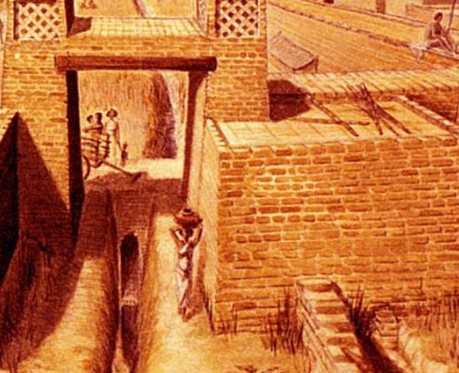History:
- The rise of the post-Neolithic Bronze Age Harappan civilization 5700 – 3300 years
 before along with the Indus Valley
before along with the Indus Valley - In the Indian subcontinent the major centers of this civilization include Harappa and Mohenjo-Daro in Pakistan and Lothal, Dholavira and Kalibangan in India
- Many archaeologists believe that weakening of the summer monsoon after 5000 years and a major drought around 4200 years throughout the Asia were the reason behind the Harappan collapse
Researchers Involved from:
- Indian Institute of Kharagpur
- Institute Archaeology
- Deccan College Pune
- Physical Research laboratory
- Archaeological survey of India
Key Aspects:
- Researchers explained that civilization was much older than about to 8th millennium
- Climatic conditions was the main reason ofHarappan collapse
- Research came from excavated site of Bhirrana, Haryana that depicts preservation of all cultural levels of Pre-HarappanHakra phase through Early Mature Harappan to mature Harappan time
Earlier Phases are identified by:
Countryside and early village farming communities
Mature Harappan time is recognized by:
- Urbanized with several organized cities
- Developed material and craft culture
The late Harappan phase witnessed:
- Large scale de-urbanization
- Population decrease
- Abandonment of many established settlements
- Lack of basic amenities, interpersonal violence
- Disappearance of Harappan script
About Bhirrana:
High concentration of settlements along the Vedic river valley ‘Saraswati’, an extension of Ghaggarriver in the Thar Desert
Technique Used:
Researchers dated potteries of Early Mature Harappan time by a technique called optically stimulated luminescence (OSL)
AffairsCloud Recommends Oliveboard Mock Test
AffairsCloud Ebook - Support Us to Grow
Govt Jobs by Category
Bank Jobs Notification





